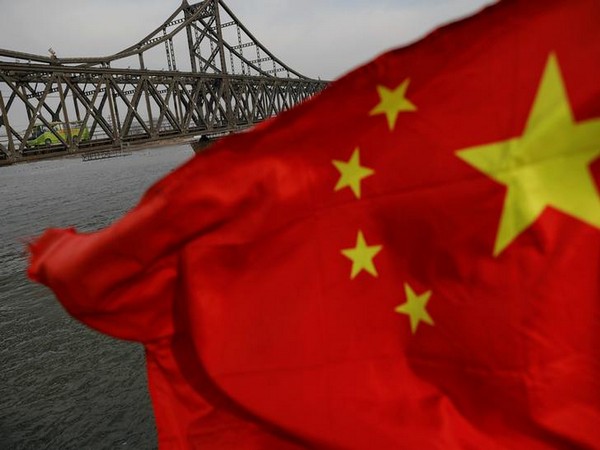Why is Beijing increasing its engagements in Nepal?
As China has relaxed its Covid restrictions, the frequency of bilateral engagements between Nepal and China has grown over the past few months.

- Country:
- Nepal
As the Chinese engagements with Nepal have increased post-relaxation of Covid restrictions, it is being said that Beijing is worried that "third parties" may derail bilateral relations, according to leaders and experts, The Kathmandu Post reported. As China has relaxed its Covid restrictions, the frequency of bilateral engagements between Nepal and China has grown over the past few months, The Kathmandu Post reported.
China has resumed all kinds of visits, junkets and trips while it is also sending politicians of various ranks to Kathmandu to assess the ground situation. While, on the one hand, Nepal Minister for Industry, Commerce and Supplies Ramesh Rijal heads for China on Monday to participate in a trade fair there while Assembly Chairman Ganesh Prasad Timilsina has been touring China and visiting leaders since June 11.
A Chinese delegation from the International Department of the Central Committee of the CPC landed in Kathmandu on Friday and met top leaders. The four-member Chinese delegation has met all top leaders who will be part of the soon-to-be-announced Socialist Front, the Kathmandu Post reported.
The CPN (Maoist Centre), the CPN (Unified Socialist), the Janata Samajbadi Party, and the Communist Party of Nepal led by Netra Bikram Chand will be part of the front. The Bhattarai-led Socialist Party Nepal is still undecided whether it will join the front as of Sunday evening. "The Chinese were inquisitive about the new socialist front and wanted to know how it will evolve and what implications it will have on Nepali politics," the Nepal Daily cited a leader who met the Chinese delegation.
After meeting the Chinese delegation, former PM Bhattarai tweeted, "Had a very cordial and fruitful talk with the delegation of the International Department of the Communist Party of China (CPC)". "Wide range of issues of mutual interests of Nepal and China, changing geo-political dynamics in the region and mutual cooperation between Socialist Party of Nepal (SPN) and CPC were discussed," he said.
The CPC delegation also told the Nepali leaders that some "external elements" are trying to derail the Nepal-China relations, and asked Nepali leaders to be cautious, Kathmandu Post reported. "Some elements are trying to derail and disturb the Nepal-China relations, which worries us. We see the hand of a third party, but this should not happen. We want to develop good relations with Nepal and the state visit of Chinese President Xi Jinping in 2019 gave a new direction to the Nepal-China ties," the Nepal daily cited two Nepali leaders after the meetings.
According to the Nepali leaders, besides expressing concerns about the possibility of a third party derailing Nepal-China relations, Chinese leaders queried about the BRI projects in Nepal. However, the leaders pointed out that Nepal's current economic condition does not allow for the implementation of more BRI projects on loan.
"But we clearly told them that Nepal's current economic condition does not allow for the implementation of more BRI projects on loan," a leader in the Sapkota-led delegation told the Post. Soon after Sapkota's return from China and ahead of Prime Minister Dahal's visit to India, Wang Xiaohui, the Sichuan province secretary of the CPC, arrived in Kathmandu on May 30 and held high-level meetings.
On March 15, Chinese President Xi during the 'CPC in Dialogue with World Political Parties High-Level Meeting' in Beijing pitched the GCI concept while expressing the CPC's "sincere readiness to work with political parties of all countries to advance modernization with distinct national features, promote inter-civilization exchanges and mutual learning around the world and build a community with a shared future for mankind," according to the Chinese Foreign Ministry. Nepal PM Pushpa Kamal Dahal is expected to visit China by the end of August or in September.
The Kathmandu Post cited Chandra Dev Bhatta, an expert who writes on geopolitical issues, who said that the visits could be useful in "recultivating working relations at the government level and with like-minded political parties, which have deteriorated to some extent in recent years. These visits could also help prepare the ground for taking forward the stalled BRI projects." Bhatta added, "Moreover, these visits would help set the agenda for Nepal PM Dahal's China visit. His recent visit to India and agreements signed on the occasion might have alarmed the Chinese. Also, as parties are planning to launch a socialist front by keeping the CPN-UML out, the Chinese might be interested in gaining insights into the future of the leftist movement in Nepal."
Another set of experts says Chinese engagement will increase in Nepal in the days to come. "We cannot ignore China and Chinese concerns and cannot leave bilateral projects unattended," The Kathmandu Post cited Sundar Nath Bhattarai, the executive chairman of the China Study Center, a Kathmandu-based think-tank as saying.
Bhattaraj added, "They want to assess the evolving political situation here and feel the Dahal government's pulse," The Kathmandu Post reported. (ANI)
(This story has not been edited by Devdiscourse staff and is auto-generated from a syndicated feed.)










